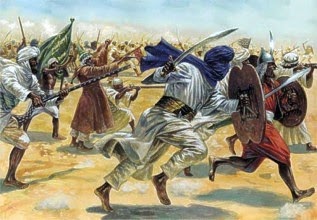Simla Deputation by taimoor Gondhal
Background
The political scene of India was affected by the vigorous political activities of the Congress which had no rival in the political arena. The Muslims believed that only an organized endeavour would lead them to success.
Political Scene of India in that arena was as follow:
1. Ever since its establishment in 1885 as a political organization, All India Congress had been actively striving for the Hindu cause. It had ignored the aims and objectives which said that the Congress would work for the protection of interests of all communities of India irrespective of their religion and nationality. It, however, could not pursue this lofty principle of looking after the interests of all communities of India and very soon indulged in purely pro-Hindu activities. It became clear, by Congress designs, that it was a forum meant to project the Hindu demands only.
2. The Hindu opposition to Urdu and partition of Bengal revealed it to the Muslims that the Hindus and Congress would never allow them a respectable place in the Indian society. The Hindu and Congress agitation intensified these feelings and aroused Muslim suspicions about Hindu designs.
3. The rise of Hindu Nationalism awakened Muslim’s feelings of separate identity.
4. The movement launched by Swami Dayanand and B.G. Tilak raised Muslims eye-brows who seriously pondered over their future plans to safeguard their interests.
Simla Deputation
The Simla Deputation of 1906 was the first systematic attempt on the part of the Muslims to present their demands, to the British government and to seek their acceptance.
The Simla deputation comprised 35 Muslims from all over India. It was a galaxy of Muslims leaders from all the provinces, from one end of India to the other and it had Muslims of all background. Therefore, when in 1906, this deputation called on the Viceroy, it was the most representative Muslim delegation. This delegation was led by Sir Agha Khan and Nawab Mohsin ul Malik served as a secretary and this delegation met the Viceroy in Simla that was why it was called as Simla Deputation.
The memorandum which they presented was a kind of demands which were the uppermost in the minds of the Muslims at that time. The delegation emphasized that the Muslims should not be viewed simply in numerical terms but they should take into account their historical importance and the kind of contribution the Muslims had made to British India and keeping in view that importance they should work towards accommodating their demands.
The delegation emphasized that democratic principle should be introduced keeping in view the peculiar conditions and circumstances of India. The diversity, the fact that there different kinds of people living in India and the fact that the Muslims consider themselves to be a separate entity, all these things had to be taken into account because the India was not a homogenous amalgamated or monolithic political identity. It was a political identity comprising diversity, divergence in view, divergence in outlook and when you introduce some kind of system then these realities had to be accommodated.
Demands of Simla Deputation
Muslim leaders presented following demands:
· Representation more than their population because of their importance.
· Separate electorate
· Reservations of Muslims seats in government jobs.
· Special share in Municipal or district boards University senates and syndicates
· Muslim representation in Viceroy Executive Council.
· MuslimUniversity at Aligarh.
The Viceroy was sympathetic towards the demands. It encouraged the Muslims to launch struggle for their rights parallel to the Indian National Congress but it required an organized platform.
Conclusion
It was a great achievement of the Simla Deputation to have convinced the Viceroy about the genuineness of the Muslim’s demands. The Muslims were now convinced that organized efforts were essential to press for the acceptance of the demands. The most important demand of separate electorate was accepted by the Government and included in the Minto-Morley Reforms of 1909. At this time the Muslims had left the Congress and had not political platform to project their demands. They badly needed a forum for the projection and safeguard of their interests to counter the false propaganda of the Congress. This led to the formation of All India Muslim League.




Comments
Post a Comment